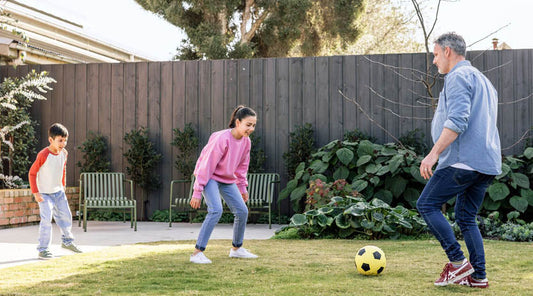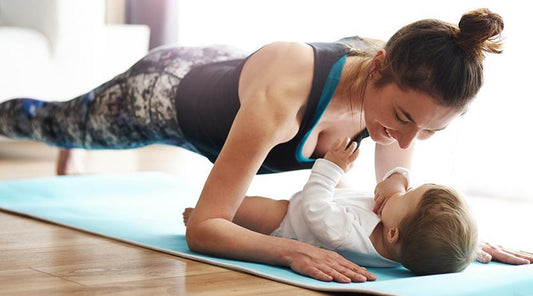Contact lenses for sports
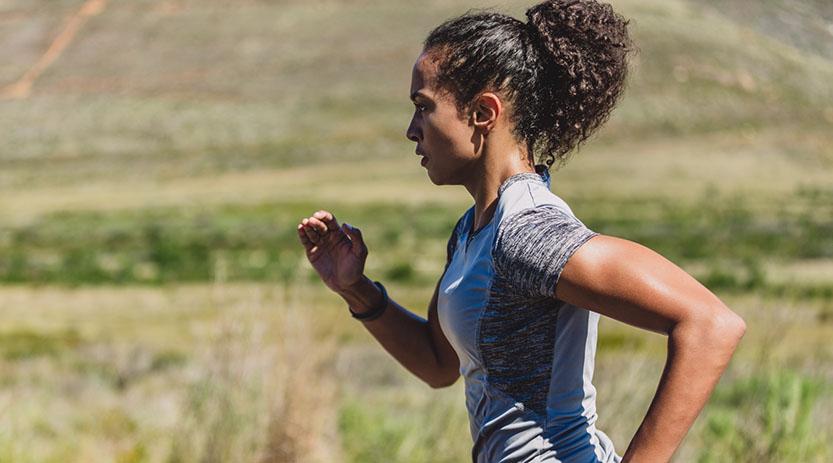
Getting your heart rate up can be tricky if you’re also trying to stop your glasses from falling down. That’s why so many active people choose contact lenses.
They’re often a better choice for when you’re playing sport or working up a sweat – and they’re usually just as safe for your eyes as regular glasses.
The benefits of wearing contact lenses during sport
- Better peripheral vision – so you can see the ball (or your competition) without turning your head.
- A clear field of view – you might even perform better without glasses frames obstructing your view.
- No fog or splatter – which can both happen if you’re wearing glasses on a cold day or if it’s wet or muddy outside.
- No risk of glasses constantly slipping down your nose – and more time to focus on upping your game.
- You can more easily wear sunglasses or safety equipment – to help protect your eyes from the sun or impact injuries.
Which lenses are right for you?
It depends on the type of sport you play. Soft lenses are usually the way to go for active types – as hard lenses can pop out more easily.
If you do outdoor sports – like cycling or running – you might want to consider Transitions contact lenses, which darken in the sun and lighten when you’re indoors. “If you don't like Transitions lenses or they’re not suitable for you, ask your optometrist about a contact lens that has a UV blocker,” Makin says. However, you’ll still need to wear sunglasses or sunscreen to protect the area around your eyes, she adds.
Daily wear contact lenses are likely to be the best option if you play sports in dirty or muddy conditions (like football). For longer-term or endurance activities – like mountain climbing or hiking – extended wear lenses are a great choice. Less time handling your lenses, more time enjoying the exercise!
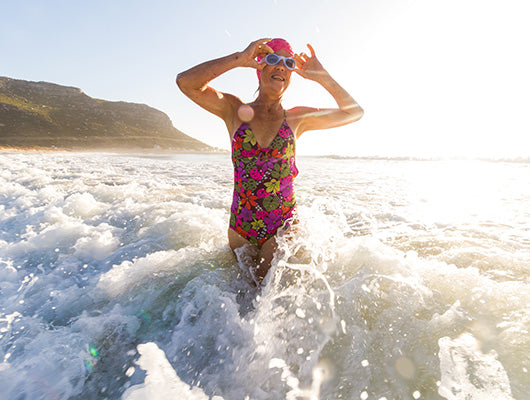
What about water sports?
Whether you’re swimming in the ocean or a pool, there’s a small risk of picking up an infection in the water. So you’re best to wear goggles or take your lenses out before you dive in. Sports like surfing or sailing (where your eyes would be shut if you were underwater) are okay, though.
Can active under-18s wear contacts?
Yes they can – and they’re a great way to avoid broken or lost glasses. Find out more about contact lenses for kids.
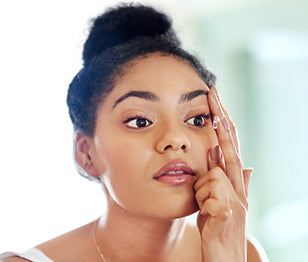
We're here to help
Ask your optometrist if you have any questions about contact lenses or book a contact lens fit or refresh appointment today.
You might also like to read...
View all-
A little about Orthokeratology
Are you looking for a solution that doesn’t involve invasive procedures or surgery? Orthokeratology may be your answer…
Contact lenses guideA little about Orthokeratology
Are you looking for a solution that doesn’t involve invasive procedures or surgery? Orthokeratology may be your answer…
Read more -
Contact lenses 101: your need-to-know guide
How do teeny-tiny bits of plastic help you see better? Here’s an explainer on how contact lenses work.
Contact lenses guideContact lenses 101: your need-to-know guide
How do teeny-tiny bits of plastic help you see better? Here’s an explainer on how contact lenses work.
Read more -
Are contact lenses right for you?
Contact lenses are popular for a reason – they make life much easier for many people with vision issues. However, they might not be the right option for everyone.
Contact lenses guideAre contact lenses right for you?
Contact lenses are popular for a reason – they make life much easier for many people with vision issues. However, they might not be the right option for everyone.
Read more



